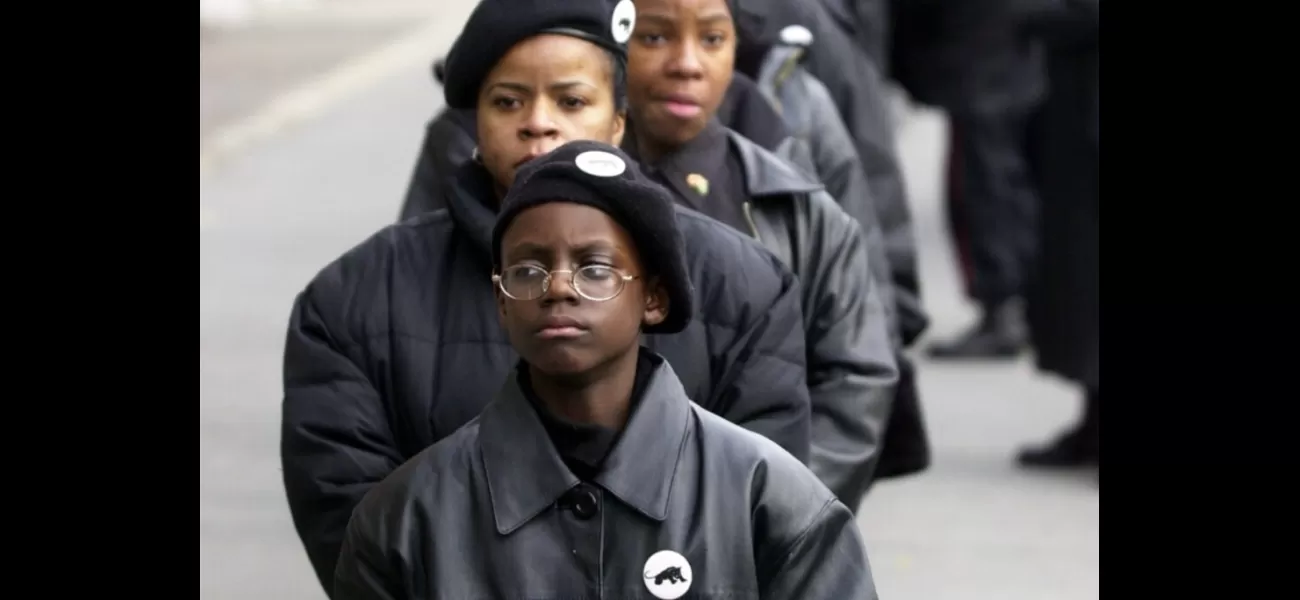4 Black Movements that promoted self-determination and pride in identity are explored.
4 Black movements/orgs focus on Kwanzaa's ideals of freedom, justice, & peace.
December 30th 2023.

Every year on December 27th, families around the world celebrate Kwanzaa. This year marks the 54th anniversary of Kwanzaa, a week-long holiday that celebrates African culture and heritage. The holiday is based on the seven core principles of Kwanzaa: unity, self-determination, collective work and responsibility, cooperative economics, purpose, creativity and faith.
The second principle, Kujichagulia, or self-determination, is celebrated on the first day of Kwanzaa. This principle encourages us to ask ourselves, "Who am I? Am I really who I am? Am I all I ought to be?" These questions challenge us to identify ourselves, name ourselves, create for ourselves, and speak for ourselves.
This is a concept that is particularly relevant today, as current Black organizations such as Black Lives Matter, Black Youth Project 100, Afrikan Black Coalition, Black Alliance for Just Immigration, and Institute of the Black World 21st Century fight for meaningful access to political, economic, and cultural resources.
Though the struggle for self-determination and multicultural democracy has not yet reached its desired goals, these efforts have been met with some success in the past. Three ideologies in particular have worked to reconnect African Americans to Africa and promote self-determination: Garveyism, the Harlem Renaissance, and Pan-Africanism.
As we celebrate Kwanzaa this year, BLACK ENTERPRISE encourages you to learn from the past and incorporate the best practices of self-determination, economic development, and multicultural democracy into our future pursuits. Here are four trailblazing Black movements and organizations that illustrate Kwanzaa's theme of freedom, justice and peace:
The Nation of Islam was founded in 1930 in Detroit, Michigan by Wallace D. Fard Muhammad. The movement was Islamic and Black nationalist, and their educational and economic programs appealed to the Black masses in the 1950s and 1960s. These programs fostered creativity and resilience by fighting drug and alcohol abuse, teen pregnancy, crime, poverty, and high unemployment.
Malcolm X, an ex-member of the Nation of Islam, established the Organization of African American Unity in 1964. The organization worked to bring complete independence to people of African descent in the Western Hemisphere through collaboration between African states. Malcolm X declared OAAU’s motto in his 1964 speech: “We want freedom by any means necessary. We want justice by any means necessary. We want equality by any means necessary.”
The Civil Rights Movement of the 1960s saw thousands of African Americans participating in nonviolent protests against racial segregation. Martin Luther King, Jr., Stokely Carmichael, and Floyd McKissick were all influential civil rights leaders at the time.
The Black Power Movement was another important movement of the time. Its mission was to redefine Black cultural identity, liberate Blacks from the racial caste system, and to create social transformation in the Black community. The Black Panther Party was one of the organizations of this movement, founded by Huey P. Netwon in 1966. The group developed the 10-point program to facilitate demands for political power, self-determination, full employment, better education, housing, food, social justice to end police brutality and unfair trial, and economic development.
As we reflect on the past, let us look to these movements and organizations for inspiration and guidance in our own pursuits of self-determination, economic development, and multicultural democracy. Heri za Kwanzaa.Happy Kwanzaa!
The second principle, Kujichagulia, or self-determination, is celebrated on the first day of Kwanzaa. This principle encourages us to ask ourselves, "Who am I? Am I really who I am? Am I all I ought to be?" These questions challenge us to identify ourselves, name ourselves, create for ourselves, and speak for ourselves.
This is a concept that is particularly relevant today, as current Black organizations such as Black Lives Matter, Black Youth Project 100, Afrikan Black Coalition, Black Alliance for Just Immigration, and Institute of the Black World 21st Century fight for meaningful access to political, economic, and cultural resources.
Though the struggle for self-determination and multicultural democracy has not yet reached its desired goals, these efforts have been met with some success in the past. Three ideologies in particular have worked to reconnect African Americans to Africa and promote self-determination: Garveyism, the Harlem Renaissance, and Pan-Africanism.
As we celebrate Kwanzaa this year, BLACK ENTERPRISE encourages you to learn from the past and incorporate the best practices of self-determination, economic development, and multicultural democracy into our future pursuits. Here are four trailblazing Black movements and organizations that illustrate Kwanzaa's theme of freedom, justice and peace:
The Nation of Islam was founded in 1930 in Detroit, Michigan by Wallace D. Fard Muhammad. The movement was Islamic and Black nationalist, and their educational and economic programs appealed to the Black masses in the 1950s and 1960s. These programs fostered creativity and resilience by fighting drug and alcohol abuse, teen pregnancy, crime, poverty, and high unemployment.
Malcolm X, an ex-member of the Nation of Islam, established the Organization of African American Unity in 1964. The organization worked to bring complete independence to people of African descent in the Western Hemisphere through collaboration between African states. Malcolm X declared OAAU’s motto in his 1964 speech: “We want freedom by any means necessary. We want justice by any means necessary. We want equality by any means necessary.”
The Civil Rights Movement of the 1960s saw thousands of African Americans participating in nonviolent protests against racial segregation. Martin Luther King, Jr., Stokely Carmichael, and Floyd McKissick were all influential civil rights leaders at the time.
The Black Power Movement was another important movement of the time. Its mission was to redefine Black cultural identity, liberate Blacks from the racial caste system, and to create social transformation in the Black community. The Black Panther Party was one of the organizations of this movement, founded by Huey P. Netwon in 1966. The group developed the 10-point program to facilitate demands for political power, self-determination, full employment, better education, housing, food, social justice to end police brutality and unfair trial, and economic development.
As we reflect on the past, let us look to these movements and organizations for inspiration and guidance in our own pursuits of self-determination, economic development, and multicultural democracy. Heri za Kwanzaa.Happy Kwanzaa!
[This article has been trending online recently and has been generated with AI. Your feed is customized.]
[Generative AI is experimental.]
0
0
Submit Comment





